
Understanding Banana Plugs: Are They Worth Using for Your Speakers?
Estimated reading time: 4 minutes
This week we talk about understanding Banana Plugs: are they worth using for your speakers?
If you’ve recently set up a home theatre system or upgraded your audio gear, you’ve likely come across the term banana plugs.
These small, cylindrical connectors are used to connect speaker wires to audio equipment like amplifiers and speakers. While they may seem like a minor accessory, banana plugs can have a big impact on the quality and convenience of your audio setup.
But what exactly are banana plugs, and do you really need them?
What Are Banana Plugs?
Banana plugs are a type of electrical connector used to join wires to binding posts, commonly found on speakers and amplifiers.
They get their name from their distinctive shape — a rounded metal pin that resembles the shape of a banana. Most banana plugs are designed to fit snugly into a 4mm socket, which is standard on most audio equipment.
Banana plugs are typically attached to the ends of speaker wire and then plugged directly into the terminals of your speaker or receiver. Some screw onto bare wire, while others require crimping or soldering for a more secure fit.
Why Use Banana Plugs?
While it’s entirely possible to connect speaker wire directly to binding posts by stripping the wire and inserting it manually, banana plugs offer several distinct advantages:
- Ease of Installation: Attaching bare wire to binding posts can be fiddly and time-consuming. Banana plugs make it quick and easy to connect or disconnect your speakers, especially in tight spaces or wall-mounted setups.
- Secure Connections: Over time, bare wire connections can become loose or oxidized, potentially degrading the sound. Banana plugs provide a stable, reliable connection that minimizes these issues.
- Cleaner Setup: Banana plugs help keep your speaker setup neat and organized, reducing clutter and the chance of stray wires touching and shorting out your system.
- Protection: By covering the exposed copper wire, banana plugs help protect against corrosion and accidental shorts.
Are Banana Plugs Necessary?
The short answer: no, banana plugs are not necessary.
Many people have used bare wire for years without issue. However, if you’re investing in a quality audio system, banana plugs can be a worthwhile upgrade for convenience, safety, and long-term durability.
For those who frequently rearrange their audio equipment, or if you’re mounting speakers high up on walls or ceilings, banana plugs can save a lot of hassle.
They’re especially useful if you have thick speaker wire, which can be hard to insert securely into spring clips or binding posts.
Choosing the Right Banana Plug
Not all banana plugs are created equal. Look for:
- Gold-plated connectors to resist oxidation.
- Solid metal construction (ideally copper or brass).
- Compression or solder-type termination for maximum contact area.
- Dual-screw or locking mechanisms for mechanical stability.
Avoid cheap, spring-loaded plugs that can loosen over time or degrade under heat and vibration.
Final Thoughts: Understanding Banana Plugs: Are They Worth Using for Your Speakers?
In the audiophile world, every link in the audio chain matters. Banana plugs may be a minor component, but their role in preserving signal purity, improving connection reliability, and supporting safe experimentation shouldn’t be underestimated.
While purists might argue that a direct, properly terminated bare wire has the fewest connection points, in real-world applications — especially high-current speaker connections — quality banana plugs often provide a superior, more practical solution without compromising sonic fidelity.
The difference between pretty good and reference often comes down to the smallest tweaks. Banana plugs might not be as exciting as a new tube in your amp or the latest flagship speaker, but they play a critical role in preserving the performance you paid for.
In the world of high-end audio, consistency is fidelity. If your chain ends with oxidized copper pressed into a loose terminal, you’re leaving performance on the table.
Banana plugs won’t transform your system overnight — but they will ensure that every watt, every transient, and every nuance your rig is capable of making, actually makes it to your speakers.
- HDMI Cables Explained
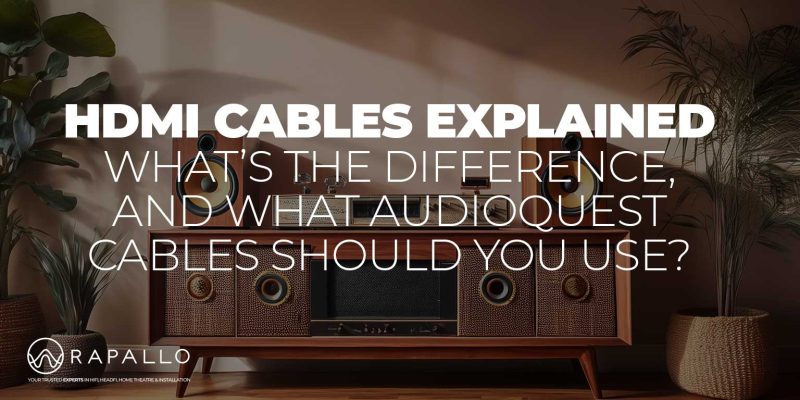 HDMI Cables Explained: What’s the Difference, and what AudioQuest Cables should you use?? Walk into any electronics store or browse…
HDMI Cables Explained: What’s the Difference, and what AudioQuest Cables should you use?? Walk into any electronics store or browse… - How To Set Up An Audiophile Network Switch
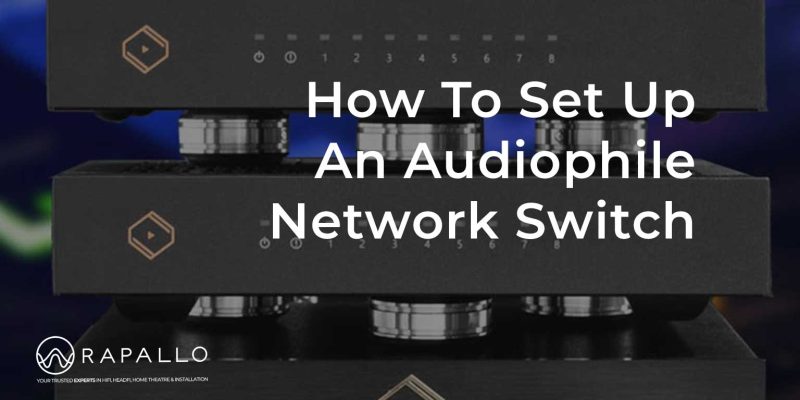 How to Set Up an Audiophile Network Switch: A Guide for Better Sound Quality As high-resolution music streaming becomes the…
How to Set Up an Audiophile Network Switch: A Guide for Better Sound Quality As high-resolution music streaming becomes the… - Ground Cables and Turntables
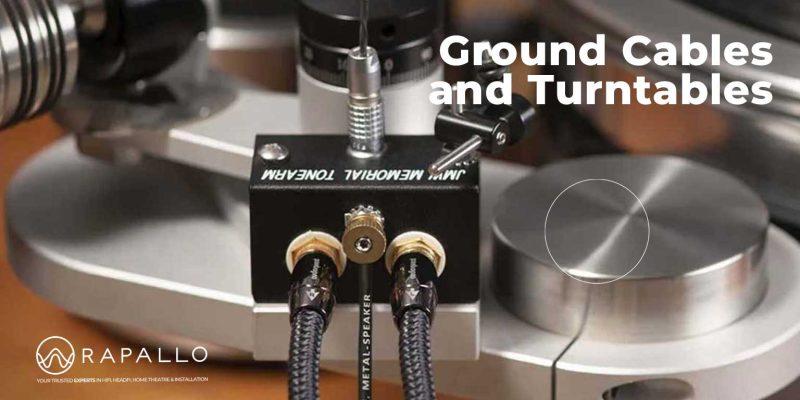 Ground Cables and Turntables, time to separate electrical fact from audiophile folklore – at least we will try. Among the…
Ground Cables and Turntables, time to separate electrical fact from audiophile folklore – at least we will try. Among the… - What Are Planar Magnetic Headphones?
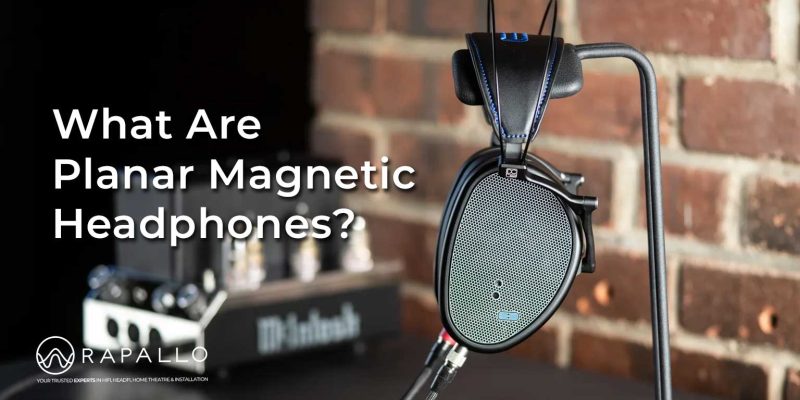 So what are Planar Magnetic Headphones? Here is our guide for curious HeadFi listeners. If you’ve spent any time browsing…
So what are Planar Magnetic Headphones? Here is our guide for curious HeadFi listeners. If you’ve spent any time browsing… - Open-Back vs Closed-Back
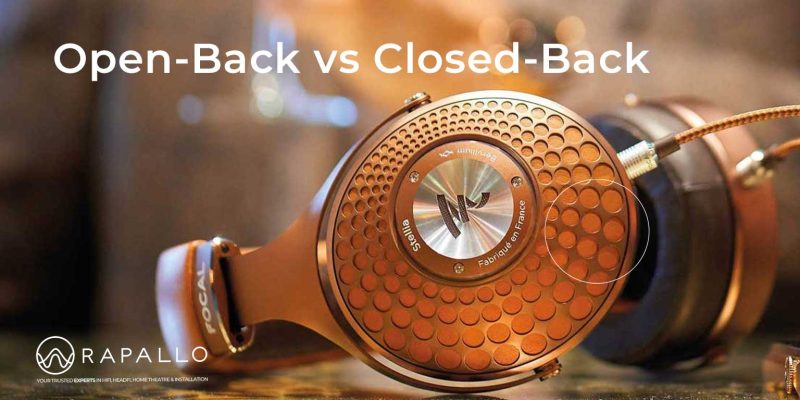 Ah, headphones and Open-Back vs Closed-Back… Your loyal companions through late-night jam sessions, endless Zoom calls, and those “I’m totally…
Ah, headphones and Open-Back vs Closed-Back… Your loyal companions through late-night jam sessions, endless Zoom calls, and those “I’m totally… - Our Guide to Buying a CD Player
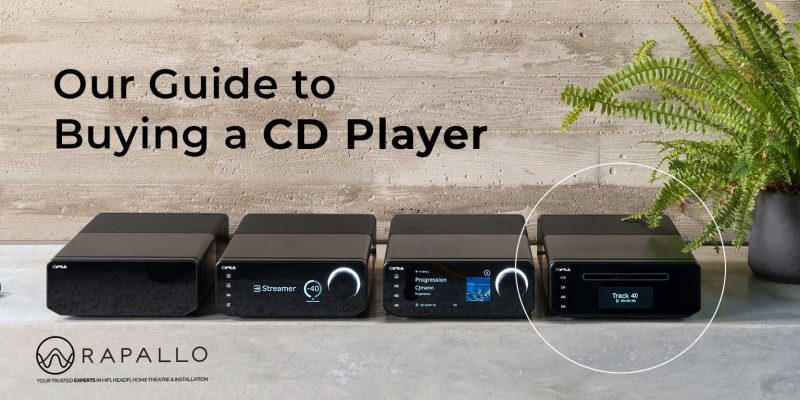 Our Guide to Buying a CD Player. What to look for in today’s market and why CD Players still matter.…
Our Guide to Buying a CD Player. What to look for in today’s market and why CD Players still matter.…
 NZ AV specialists available to help before or after your purchase
NZ AV specialists available to help before or after your purchase 1,750+ verified product reviews from genuine NZ verified purchasers
1,750+ verified product reviews from genuine NZ verified purchasers Secure checkout & local warranty, we look after you
Secure checkout & local warranty, we look after you NZ price match on identical products so you know you are getting the right price
NZ price match on identical products so you know you are getting the right price